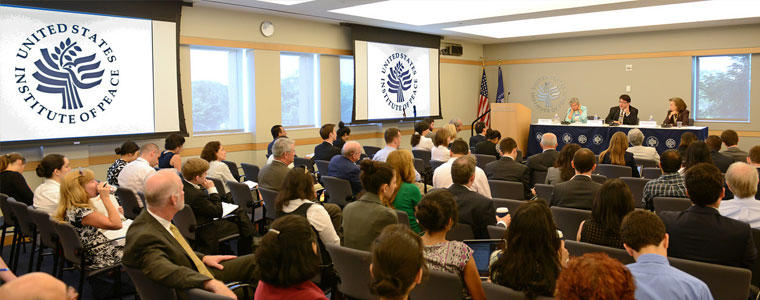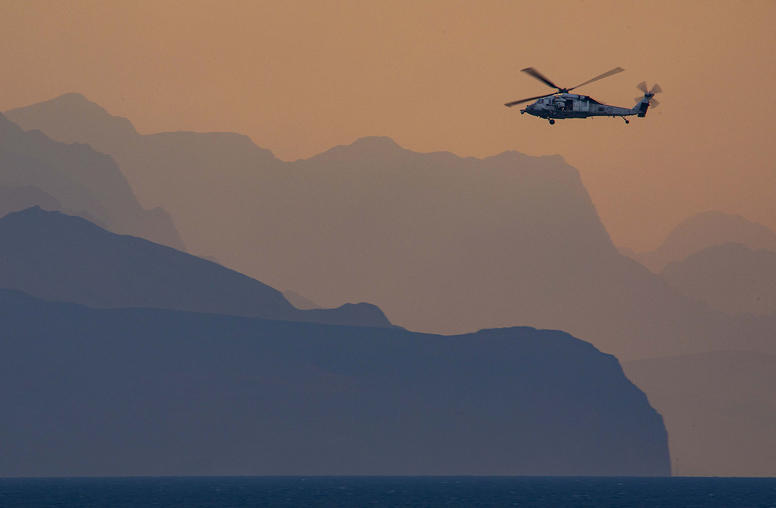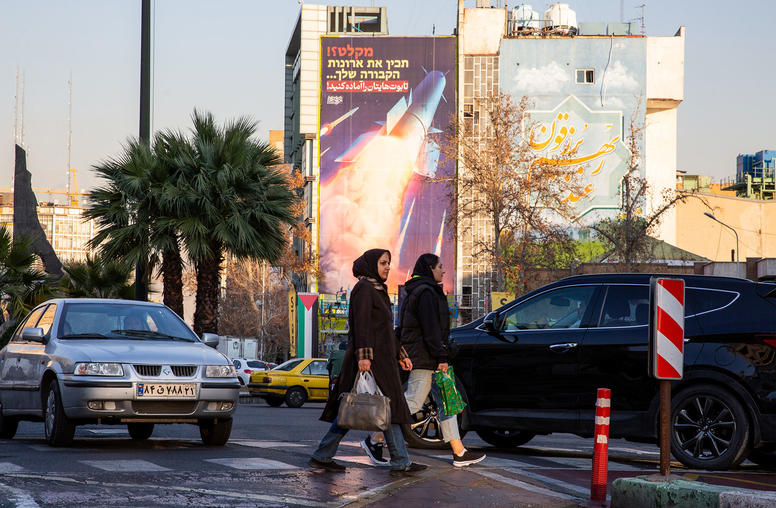Change and Continuity in the Islamic Republic of Iran
The United States Institute of Peace, together with the Woodrow Wilson Center for International Scholars, will host six distinguished Iran analysts on June 27, 2012. Drawn from USIP’s Internal Iran Study Group co-chaired by Daniel Brumberg and Farideh Farhi, these scholars will consider a diverse range of political struggles now unfolding in Iran. Chairing this event will be Haleh Esfandiari, director of Middle East Programs at the Woodrow Wilson Center, who will also be joined by visiting Woodrow Wilson scholar Bernard Hourcade.

Iran’s political system is going through dramatic changes. The rise of a new cadre of security apparatchiks, combined with the growing power of the Supreme Leader, may signal the emergence of a “security state” that excludes many of the groups that were previously part of the Islamic Republic. At the same time, vestiges of Iran’s 30 year-system of competitive authoritarianism – by which a ruling elite managed factional competition via a myriad of institutions—have survived, thus yielding a policy making process that might eventually lend itself to domestic political accommodation.
What do these countervailing trends mean for Iran’s internal and external politics? The United States Institute of Peace, together with the Woodrow Wilson International Center for Scholars, will host six distinguished analysts. Drawn from USIP’s Internal Iran Study Group chaired by Daniel Brumberg and Farideh Farhi, these scholars will consider a diverse range of political struggles now unfolding in Iran.
Chairing this event will be Haleh Esfandiari, director of Middle East Program at the Wilson Center, who will also be joined by visiting Woodrow Wilson Scholar Bernard Hourcade. Please join us for what promises to be a fascinating debate.
Agenda
Panel 1: Welcome and Overview
-
Haleh Esfandiari, Chair
Director, The Woodrow Wilson Center Middle East Program -
Daniel Brumberg
Co-Director, USIP Iran Internal Study Group -
Farideh Farhi
Co-Director, USIP Internal Study Group
-
Haleh Esfandiari, Chair
Director, Woodrow Wilson Center Middle East Program -
Mehrangiz Kar
Scholar, USIP Iran Internal Study Group -
Shadi Mokhtari
Scholar, USIP Iran Internal Study Group
-
Haleh Esfandiari, Chair
Director, Woodrow Wilson Center Middle East Program -
Kevan Harris
Scholar, USIP Iran Internal Study Group -
Mehrzad Boroujerdi
Scholar, USIP Iran Internal Study Group -
Bernard Hourcade, DiscussantVisiting Public Policy Scholar, Woodrow Wilson Center



